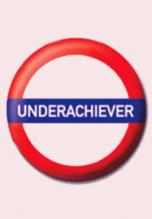Perhaps we should stop trying to put square pegs in round
holes. Both parents and teachers feel very frustrated by intelligent students
who do not perform in school. They assume that the kids are just plain lazy or
that the school personnel are not trying hard enough. We label these students gifted
underachievers. Instead of everyone casting blame, perhaps we should look at
this dilemma in a different way.
I recently ran into the former teacher of one such student.
Mrs. Dignan said that Thomas was obviously very smart and a nice boy, but was
not a producer. Now in his early 30s, Thomas is working hard and has a good
job. He didn’t have problems in school because he was lazy or because his
teachers were not trying; instead, he had problems because he has a style of
learning that cannot be readily taught. He was, and still is, extremely
visual-spatial and learns through experimentation.
Rather than beat our heads against the wall trying to fit
this type of student into an imperfect system,
we should consider alternatives. What is the young person interested in,
academic or nonacademic? There are many valuable careers that do not use
traditionally academic subjects. As a young person, Thomas’s interests were in
computers, film (both watching and making), and individual sports. He loved it
when his parents read to him, but he did not enjoy reading himself (unless it
was fantasy). He learned to play the guitar and did quite well with it. He
seemed to be born with the skill to draw well and combined this with a
well-developed sense of humor to create cartoons. He enjoyed being with peers
who were deep thinkers who were also creative.
Adults need to foster and value the interests of young
people, even when can’t foresee where these interests might lead. Explore
together career possibilities that use the strengths of each child.
While Thomas did not do well in school, he did finish high
school and also spent a few years in college. After that, he moved in and out
of jobs trying to find something that would fit his interests. Finally, in his
mid-20s, he landed on just that. He got back into computers where he could use
his strong visual-spatial and excellent problem solving skills. At first he
built and maintained computer systems. Then he moved into management and
started a few side businesses of his own related to computers. Thomas thrives
on complex problems much as a lawyer would welcome the challenge of a court
scene. He makes a good salary, has lots of friends, and is a very caring
person.
Today, Thomas is certainly not an underachiever. In fact, he
has achieved far more than many of his classmates who were excellent students.
But Thomas is pretty much self-taught. In fact, looking back on the situation,
there is probably no way that anyone could have taught him. His mind does just
not respond to traditional school methods. He used to be a square peg who
everyone was trying to fit into a round hole. If the adults in his life had
just allowed him to be the square peg, life may have been a little easier as he
was growing up.

No comments:
Post a Comment
Your comments will be available after approval.